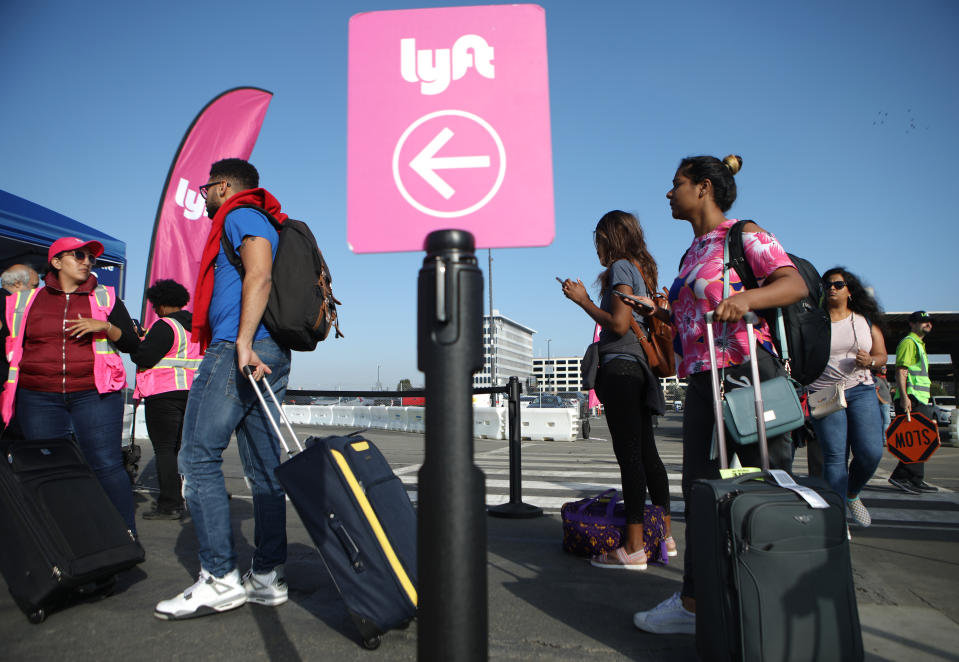Ride-hailing service Gett shuts down Juno, partners with Lyft in profitability push
The No. 3 ride-sharing app in New York City is shutting down.
Juno, which launched in 2016 and was only operational in New York City, sold itself to Israeli ride-sharing company Gett in 2017. Now Gett is shutting down Juno on Monday evening.
Gett announced the end of Juno in a press release that also touted a new partnership with Lyft (LYFT). Gett’s corporate clients will now be able to access Lyft rides in the U.S. beginning in 2020, Gett says, which will give them access to a larger pool of drivers.
Announcing a deal with Lyft might sound like the inevitable next step in Lyft acquiring Gett outright. But this is the second partnership of this type that Gett has made; it made a similar agreement with Carey Limo in Atlanta. It’s all part of a pivot to a business-to-business model that Gett quietly made when it acquired Juno; this Lyft deal represents a doubling-down on that path. Juno was the last part of Gett that was consumer-facing, so it no longer fit.

But this is also about profitability, and the difficulty of achieving profitability in this crowded business.
Juno was known as a rider-friendly service that touted better prices than Uber and Lyft, higher splits for drivers, 24/7 customer phone support, and social responsibility (through a carbon-offset program).
But it also lost a lot of money: nearly $1 million per day when it sold for $200 million to Gett. Juno was not going to be profitable for a very very long time, whereas Gett, without Juno, now “expects to be operationally profitable” in December of this year. (Lyft has said it will be profitable by Q4 of 2021.)
I was a Gett rider and a Juno rider. Juno was cheaper than the dreaded Uber or Lyft, had 24/7 phone contact, always generously made up for any errors, gasped when I saw my break-up email. Totally bummed. U will be missed @juno
— eqnyc (@eatquestnyc) November 18, 2019
This is also a move about regulation. Gett ends its press release with a swipe at New York regulation: “Juno is shutting down in New York today as a result of both Gett's increased focus on the corporate transportation sector and the enactment of misguided regulations in New York City earlier this year.”
The comment refers to a slew of recent ways New York City has tightened rules for ride-share apps, including a higher pay floor for ride-share app drivers, and extending the cap on how long ride-share app drivers can be in the busiest parts of Manhattan.
The regulations are an effort to protect drivers, but are a major headache for Uber and Lyft, and for smaller apps they may prove insurmountable. Expect the new rules to cull the field further, making it even more of a duopoly between Uber and Lyft. Uber stock is down 40% from its IPO price; Lyft is down 37% from its IPO price.
And there’s one more wrinkle to the Juno story. The app, back before it sold to Gett in 2017, had billed itself as giving drivers equity in the company. Then the SEC reached out and Juno determined the RSUs (restricted stock units) it had given some drivers were now likely void; when it sold to Gett, it awarded some drivers $100. The Independent Drivers Guild (IDG) filed a formal complaint against Juno after it sold to Gett; now, on the news Juno is shutting down, the guild says in a statement: “It's good for drivers to have different options of companies to drive with, so we are sorry to see Juno go. But in the end, Juno was not the driver-friendly company they billed themselves to be.”
Gett says it services 15,000 corporate clients (entities, not individuals) and will pay all Juno drivers in full for rides completed by the app’s end of service on Monday night. It’s also pushing all Juno customers to download Lyft by offering them a 25% Lyft credit.
—
Daniel Roberts is a senior writer and show host at Yahoo Finance. Follow him on Twitter at @readDanwrite.
Uber, Lyft stock performance shows ‘appetite for risk has diminished’
Airbnb has the chance to avoid the legal mistakes of Uber, Peloton
Uber is taking a page from the Amazon playbook
Uber has lived through a parade of executive exits before its IPO

 Yahoo Finance
Yahoo Finance 
